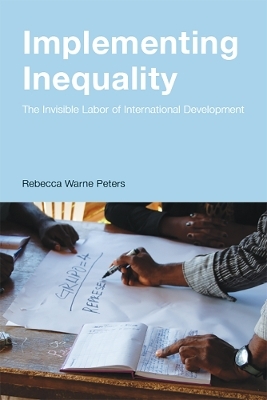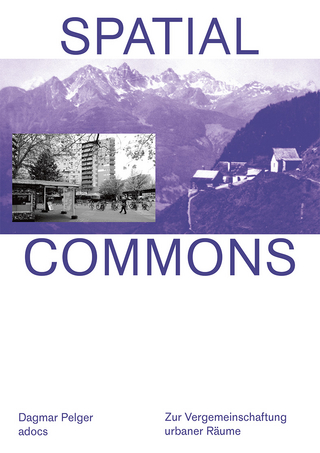
Implementing Inequality
Rutgers University Press (Verlag)
978-1-9788-0896-6 (ISBN)
Implementing Inequality argues that the international development industry’s internal dynamics—between international and national staff, and among policy makers, administrators, and implementers—shape interventions and their outcomes as much as do the external dynamics of global political economy. Through an ethnographic study in postwar Angola, the book demonstrates how the industry’s internal social pressures guide development’s methods and goals, introducing the innovative concept of the development implementariat: those in-country workers, largely but not exclusively “local” staff members, charged with carrying out development’s policy prescriptions. The implementariat is central to the development endeavor but remains overlooked and under-supported as most of its work is deeply social, interactive, and relational, the kind of work that receives less recognition and support than it deserves at every echelon of the industry. If international development is to meet its larger purpose, it must first address its internal inequalities of work and professional class.
Rebecca Warne Peters is an assistant professor of anthropology at the State University of New York, Oswego.
Glossary of Terms and Acronyms
Introduction
Inside the Encounter: The Implementariat
Implementation as Internal and External “Social Work”
Good Governance as “Development” in Angola
Research Methods and Chapter Sketches
Chapter 1: Development Hierarchies
The Development Industry and Development Ideology
Professional Inequalities
Principal-Agent Thinking and Development’s Common Sense
“Shadow Work” in Development
Development Work and “Making Policy”
Chapter 2: Development’s Inputs and Outputs
“Technically Skilled GGAP Staff…”
“… and Sufficient Support”
Inputs and Outputs
Invisible Development Work, Invisible Development Workers
Chapter 3: Reinforcing Hierarchies: Monitoring and Evaluation
Monitoring and Evaluation
Instruments and Tools
“Quality” Data
The “Lopsided Structures” of International Development
Chapter 4: Designing Interventions for Peers, Not Beneficiaries
Development’s Peerage
Interventions Designed for Peers, not Places
Sites Known and Unknown: Seeing Like a Donor
Reputations at Risk
Absence and Inequality in Development Intervention
Chapter 5: Partnership and the Development Praxiscape
Founding Partnerships
The Development “We”
“Battling” Toward Governance
Partners or Proprietors?
Partnership as Development Praxis
Conclusion: Development Without Borders
Shadow Work out of the Shadows
Expanding Principal-Agent Thinking
Tomorrow’s Development
Acknowledgments
Appendix: GGAP Logical Framework
Notes
Bibliography
Index
| Erscheinungsdatum | 02.12.2019 |
|---|---|
| Zusatzinfo | 6 tables, 1 picture |
| Verlagsort | New Brunswick NJ |
| Sprache | englisch |
| Maße | 152 x 229 mm |
| Gewicht | 3 g |
| Themenwelt | Sozialwissenschaften ► Ethnologie |
| Sozialwissenschaften ► Politik / Verwaltung | |
| Sozialwissenschaften ► Soziologie | |
| ISBN-10 | 1-9788-0896-8 / 1978808968 |
| ISBN-13 | 978-1-9788-0896-6 / 9781978808966 |
| Zustand | Neuware |
| Haben Sie eine Frage zum Produkt? |
aus dem Bereich


